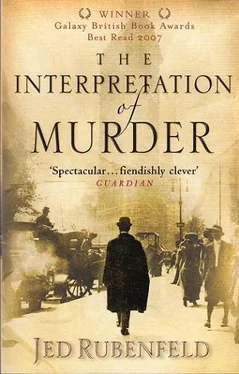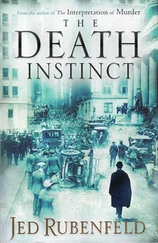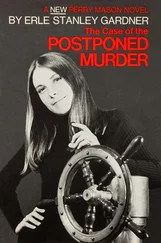Jed Rubenfeld - The Interpretation of Murder
Здесь есть возможность читать онлайн «Jed Rubenfeld - The Interpretation of Murder» весь текст электронной книги совершенно бесплатно (целиком полную версию без сокращений). В некоторых случаях можно слушать аудио, скачать через торрент в формате fb2 и присутствует краткое содержание. Жанр: Исторические приключения, на английском языке. Описание произведения, (предисловие) а так же отзывы посетителей доступны на портале библиотеки ЛибКат.
- Название:The Interpretation of Murder
- Автор:
- Жанр:
- Год:неизвестен
- ISBN:нет данных
- Рейтинг книги:5 / 5. Голосов: 1
-
Избранное:Добавить в избранное
- Отзывы:
-
Ваша оценка:
- 100
- 1
- 2
- 3
- 4
- 5
The Interpretation of Murder: краткое содержание, описание и аннотация
Предлагаем к чтению аннотацию, описание, краткое содержание или предисловие (зависит от того, что написал сам автор книги «The Interpretation of Murder»). Если вы не нашли необходимую информацию о книге — напишите в комментариях, мы постараемся отыскать её.
The Interpretation of Murder — читать онлайн бесплатно полную книгу (весь текст) целиком
Ниже представлен текст книги, разбитый по страницам. Система сохранения места последней прочитанной страницы, позволяет с удобством читать онлайн бесплатно книгу «The Interpretation of Murder», без необходимости каждый раз заново искать на чём Вы остановились. Поставьте закладку, и сможете в любой момент перейти на страницу, на которой закончили чтение.
Интервал:
Закладка:
'I'm sure, Mrs Banwell,' he replied, 'that if you would enlighten us on the subject of woman, it would be far more interesting than if I tried to.'
'I could tell you, I suppose, how women really feel about men,' said Clara invitingly. 'At least about the men they care for. Would you like that?' A groundswell of assent was heard around the table, at any rate among the male guests. 'But I won't, not unless you men promise to say how you really feel about women.' The bargain was promptly struck by general acclamation, although Younger held his tongue, as did Charles Dana at the foot of the table.
'Well, since you force me, gentlemen,' said Clara, 'I'll confess our secret. Women are men's inferiors. I know it is backward of me to say so, but to deny it is folly. All of mankind's riches, material and spiritual, are men's creations. Our towering cities, our science, art, and music — all built, discovered, painted, and composed by you men. Women know this. We cannot help being overmastered by stronger men, and we cannot help resenting you for it. A woman's love for a man is half animal passion and half hate. The more a woman loves a man, the more she hates him. If a man is worth having, he must be a woman's superior; if he is her superior, part of her must hate him. It is only in beauty we surpass you, and it is therefore no wonder that we worship beauty above all else. That is why a woman,' she wound up, 'is at her greatest peril in the presence of a beautiful man.'
Her audience was mesmerized, a reaction to which Clara Banwell was not unaccustomed. Younger felt she had thrown him the most fleeting glance at the very end of her remarks — he was not the only man at table who had this impression — but he told himself he had imagined it. It also occurred to Younger that Mrs Banwell might have just explained the wild extremes of conflicting emotion his own mother had displayed toward his father. Younger's father killed himself in 1904; his mother had not remarried. He wondered whether his mother had always both loved and hated his father, in the manner Mrs Banwell had described.
'Envy is certainly the predominant force in women's mental lives, Mrs Banwell,' said Freud. 'That is why women have so little sense of justice.'
'Men are not envious?' asked Clara.
'Men are ambitious,' he replied. 'Their envy derives chiefly from that source. A woman's envy, by contrast, is always erotic. The difference can be seen in daydreams. All of us daydream, of course. Men, however, have two kinds: erotic and ambitious. A woman's daydreams are exclusively erotic.'
'I am sure mine are not,' declared the rotund woman with the catarrh.
'I think Dr Freud is quite right,' said Clara Banwell, 'on all counts, but particularly about men's ambitiousness. My husband, George, for example. He is the perfect man. He is not at all beautiful. But he is handsome, twenty years older than I, successful, strong, single-minded, indomitable. For all those things, I love him. He also hasn't the slightest awareness that I exist, the moment I am out of his sight; his ambition is that strong. For that, I hate him. Nature requires me to. The happy consequence, however, is that I am free to do whatever I like — for example, being here tonight at one of Smith's delightful dinner parties — and George will never even know I left the apartment.'
'Clara,' responded Jelliffe, 'I'm wounded. You never told me you had such freedom.'
'I said I was free to do as I like, Smith,' Clara replied, 'not as you like.' Laughter again was general. 'Well, now I've confessed. What do the men say? Don't men secretly despise the bonds of marital fidelity? No, Smith, please; I know what you think. I'd like a more objective opinion. Dr Freud, is marriage a good thing?'
'For society or for the individual?' Freud responded. 'For society, marriage is undoubtedly beneficial. But the burdens of civilized morality are too heavy for many to bear. How long have you been a wife, Mrs Banwell?'
'I married George when I was nineteen,' Clara answered, and the thought of a nineteen-year-old Clara Banwell on her wedding night occupied the minds of several guests — not only of the male variety. 'That makes seven years.'
'In that case you will know enough,' Freud went on, 'if not from your own experience, then that of your friends, not to be surprised by what I say. Satisfying intercourse does not last long in most marriages. After four or five years, marriage tends to fail utterly in this respect, and when this happens it spells the end of spiritual communion too. As a result, in the great run of cases, marriage ends in disappointment, spiritual as well as physical. The man and the woman are thrown back, psychologically speaking, to their premarital state — with only one difference. They are poorer now. Poorer by the loss of an illusion.'
Clara Banwell stared intently at Freud.
'What is he saying?' old Professor Hyslop called out, trying to get his ear horn nearer to Freud.
'He is justifying adultery,' replied Charles Dana, speaking for the first time. 'You know, Dr Freud, apart from the parlor tricks, it is your focus on the maladies of sexual frustration that surprises me. Our problem is surely not that we place too much constraint on sexual license; it is that we place too little.'
'Oh?' said Freud.
'A billion people now live on this earth. A billion. And the number is growing geometrically. How are they to live, Dr Freud? What are they to eat? Millions flood our shores every year: the poorest, the least intelligent, the most prone to criminality. Our city is near anarchy because of them. Our jails are bursting. They breed like flies. And they steal from us. One cannot blame them; if a man is too poor to feed his children, he must steal. Yet you, Dr Freud, if I understand your ideas, seem concerned only with the evils of sexual repression. I would think a man of science ought to be more concerned with the dangers of sexual emancipation.'
'What do you propose, Charles, an end to immigration?' asked Jelliffe.
'Sterilization,' replied Dana sanguinely, dabbing a napkin to his mouth. 'The meanest farmer knows not to let his worst stock breed. Men are no more created equal than castle. If cattle were allowed to breed freely, we should have very poor meat indeed. Every immigrant to this country without means should be sterilized.'
'Not involuntarily, Charles, surely?' asked Mrs Hyslop.
'No one compels them to come here, Alva,' he replied. 'No one compels them to stay. How then can it be called involuntary? If they wish to reproduce, let them leave. What is involuntary is our being required to bear the charge of their unfit offspring, who end up as beggars and thieves. I make an exception, of course, for those who can pass an intelligence test. Splendid soup, Jelliffe, a true turtle, isn't it? Oh, I know, you will all say I am cruel and heartless. But I am only taking away their fertility. Dr Freud would take away something far more important.'
'What is that?' asked Clara.
'Their morality,' answered Dana. 'What sort of world would it be, Dr Freud, if your views became general? I can almost picture it. The lower orders come to scorn "civilized morality." Gratification becomes god. All join in rejecting discipline and self-denial, without which life has no dignity. The mob will run riot; why should they not? And this mob, what will they want when the rules of civilization are lifted? Do you think they will want only sex? They will want new rules. They will want to obey some new madman. They will want blood — your blood, probably, Dr Freud, if history is any guide. They will want to prove themselves superior, as the lowest always do. And they will kill to prove it. I picture bloodletting, great bloodletting, on a scale never seen before. You would pipe away civilized morality — the only thing that keeps man's brutality in check. What do you offer in exchange, Dr Freud? What will you put in its place?'
Читать дальшеИнтервал:
Закладка:
Похожие книги на «The Interpretation of Murder»
Представляем Вашему вниманию похожие книги на «The Interpretation of Murder» списком для выбора. Мы отобрали схожую по названию и смыслу литературу в надежде предоставить читателям больше вариантов отыскать новые, интересные, ещё непрочитанные произведения.
Обсуждение, отзывы о книге «The Interpretation of Murder» и просто собственные мнения читателей. Оставьте ваши комментарии, напишите, что Вы думаете о произведении, его смысле или главных героях. Укажите что конкретно понравилось, а что нет, и почему Вы так считаете.












